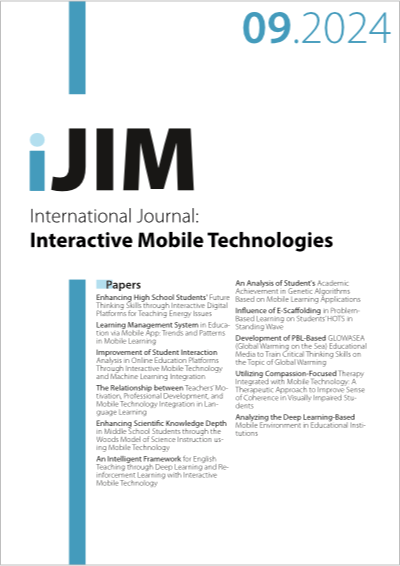Enhancing High School Students' Future Thinking Skills through Interactive Digital Platforms for Teaching Energy Issues
DOI:
https://doi.org/10.3991/ijim.v18i09.48879Keywords:
future-thinking abilities, energy challenges, interactive digital platformsAbstract
In this paper, we investigate the potential of teaching energy-related topics to enhance secondary school students’ future thinking skills, including problem-solving, predicting, and envisioning. A physics enrichment program was conducted using the “Madrasati” digital platform in a semi-experimental design involving two groups of students (experimental and control). Utilizing a pre-post measurement approach, the study employed a novel instrument to assess future thinking across three distinct levels. The analysis, involving ETA squared, Cohen’s effect size, and independent sample t-tests, revealed a significant improvement in future thinking skills for the program group. These findings suggest the potential of incorporating energy-related topics and digital platforms into secondary science curricula to enhance critical thinking skills necessary for addressing future challenges. The study further underscores the potential of digital tools and innovative teaching approaches in optimizing students’ development of future thinking competencies.
Downloads
Published
How to Cite
Issue
Section
License
Copyright (c) 2024 Asem M. Ibrahim, Ibrahim A. Al-Farhan, Eman W. Ahmed, Ahmed S. Abdelmagid, Majed A. Al-Zahrani, Nusaibah Dakamsih

This work is licensed under a Creative Commons Attribution 4.0 International License.


